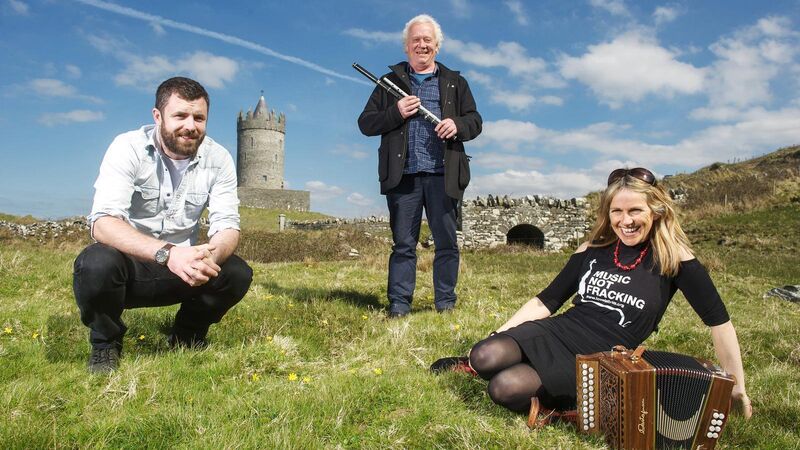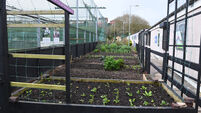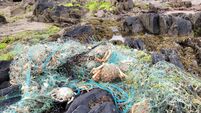Renewable Island: Fiestas ‘without footprints’ as entertainers go green

Singer Songwriter Mick Flannery, local musician Christy Barry and musician Sharon Shannon pictured at Doonagore, Doolin, launching the 3rd Doolin Folk Festival.
Ireland’s first carbon-neutral music festival took place earlier this month at Doolin, Co Clare.
Advertised as ‘the festival without the footprint’, it was centred around the Hotel Doolin – the first carbon-neutral hotel in the country and winner of Ireland’s Greenest Business at the Green Awards 2022.
















